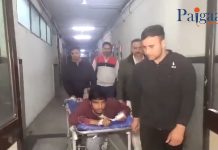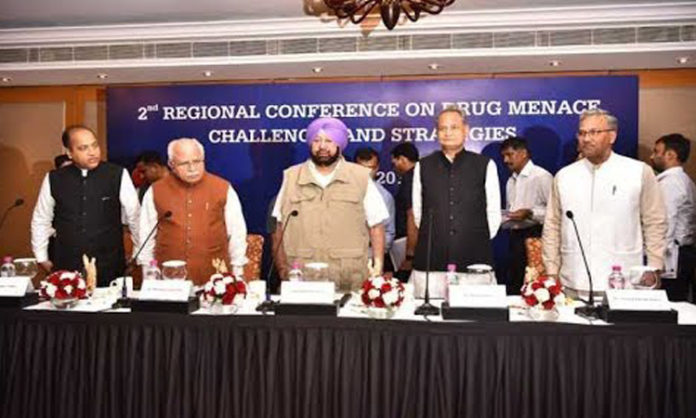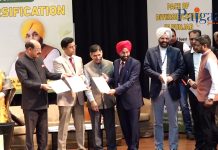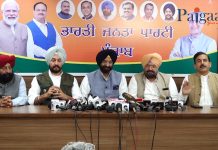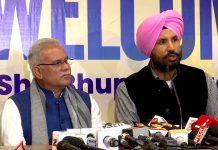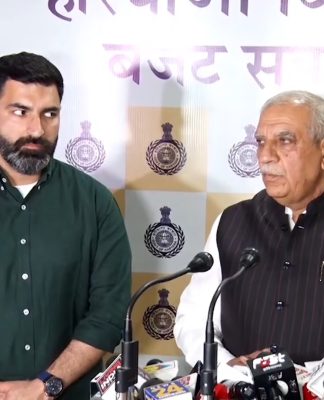Chandigarh, July 25:Terming drugs a national problem, the Second Joint Conference of Chief Ministers of the northern states on Thursday decided to set up a joint working group, involving officials of the Health and Social Justice Departments of all states, to share experiences and best practices in their respective campaigns against drugs.
The states expressed concern over the inflow of drugs from Pakistan, Afghanistan, Nigeria and other countries, and called for closer collaboration to battle the menace and make the region ‘nasha mukt’.
In a joint statement issued at the end of the conference, the Chief Ministers of Punjab, Rajasthan, Haryana, Himachal Pradesh and Uttarakhand, joined by top officials from Delhi, Jammu and Kashmir and Chandigarh, agreed on a series of powerful measures to eradicate the scourge from the region.
These included joint operations at the inter-state borders, information-sharing and implementation of the best practices of the participating states. There was a consensus among the states on the importance of strengthening the information-sharing mechanism on drugs and drug dealers/smugglers, for a more effective crackdown against them.
It was agreed that all states would launch major awareness programmes and strive to make eradication of drugs a people’s movement. The conference recognised drugs as a national problem, requiring collective efforts of all the states for its successful eradication.
It proposed, therefore, to jointly press the Centre to come out with a National Drugs Policy in order to effectively tackle the menace. It agreed to consider opening of a Regional Training Centre in Chandigarh for training of investigators for proper investigation of NDPS cases.
The states agreed to take up with the Centre a proposal to establish a Regional Drug Dependence Treatment Centre in the Chandigarh tricity area on the lines of National Drug Dependence Treatment Centre (NDDTC), AIIMS, New Delhi.
“We believe that these efforts will go a long way in eradicating this scourge from the region, thus protecting our youth and our future generations, and ensuring a safe, secure and healthy society,” said the joint statement.
The states said they were committed to “continuing and strengthening the process of consultation and cooperation, to collaborate even more closely and actively for making the region ‘nasha mukt’.”
The conference, which opened with Punjab Chief Minister Capt Amarinder Singh suggesting some tough measures to tackle the problem, was attended by officials of the IB, NCB and other central agencies.
Underscoring the growing threat from the ISI’s narco-terrorism game-plan, Amarinder said the money from the drug trade was being used by Pakistan to carry out its nefarious and divisive activities in India.
Haryana Chief Minister ML Khattar called for a comprehensive joint programme to tackle the problem of drugs which, he described, as a social rather than a political issue. He stressed the need to cut off drugs supply to prevent youth from getting addicted, and also advocated an inter-state cell phone base of live data of absconding offenders and to keep track of dealers and their associates.
Rajasthan Chief Minister Ashok Gehlot said his state was at the receiving end of drug smuggling due to its shared border with Pakistan. Supporting Amarinder’s demand for a National Drugs Policy, he called for strong steps to destroy the parallel economy being run by drug smugglers.
Himachal Pradesh Chief Minister Jairam Thakur called for a policy/plan to further strengthen the efforts of the northern states, with a public movement to create awareness and reverse the trend.
Uttarakhand Chief Minister Trivendra Singh Rawat was of the opinion that the awareness campaign against drugs should be made a part of school education, especially in view of the growing use of women and children as couriers.

















